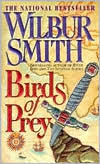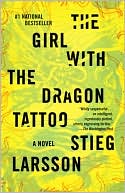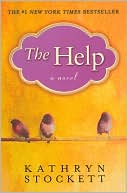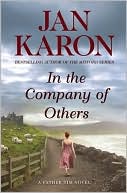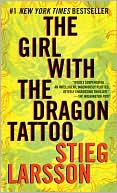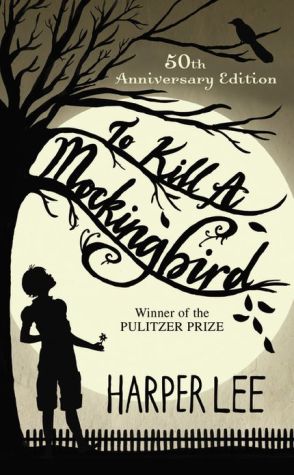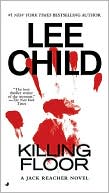Birds of Prey
Deemed "one of the world's most popular and prolific adventure writers" by The Washington Post, bestselling author Wilbur Smith is at the height of his storytelling powers in Birds of Prey, a swashbuckling epic of adventure, intrigue and passion on the dangerous high seas of 1667—a thrilling installment in the Courtney Family Adventures.\ As the choppy sea lanes of the African coast are rife with bloody battles over trade booty, Sir Francis Courteney and his 17-year-old son Hal embark on a...
Search in google:
The author of The River God and The Seventh Scroll turns his hand to swashbucking adventure on the high seas.Publishers WeeklySwashbuckling adventures at sea and on land highlight Smith's latest (after The Seventh Scroll), a number-one bestseller in England that's likely to climb the charts here. Set along the African coast during the mid-1600s, this fierce and bloody yarn features Hal Courteney, a classic seafaring hero in the making. The young sailor has been raised under the stern tutelage of his father, Sir Francis Courteney, and the somewhat gentler guidance of his African-born mentor, Aboli. Word of a truce between England and Holland doesn't reach Sir Francis in time to prevent him from capturing a treasure-laden Dutch galleon. Falsely accused of piracy, the Corteneys soon have more enemies than they can handle, including the insatiable libertine Katinka van de Velde, who sets her sights on the Courteney charge. Hal's coming-of-age is predictably spiced with romance, sea battles, imprisonments, daring escapes and an exotic voyage from Southern Africa to the Red Sea; even buried treasure and the Holy Grail figure into the plot, as befits a tale of uncompromising good guys and their irredeemably evil enemies. Smith's depiction of the African coast, and of life aboard ship, is vivid and believable. He handles the action sequences well, opting for short, trenchant paragraphs to sustain momentum. After 27 novels, Smith knows what his readers want, and once again he delivers the goods.
CHAPTER 1\ The boy clutched at the rim of the canvas bucket in which he crouched sixty feet above the deck as the ship went about. The mast canted over sharply as she thrust her head through the wind. The ship was a caravel named the Lady Edwina, after the mother whom the boy could barely remember.\ Far below in the pre-dawn darkness he heard the great bronze culverins slat against their blocks and come up with a thump against their straining tackle. The hull throbbed and resonated to a different impulse as she swung round and went plunging away back into the west. With the southeast wind now astern she was transformed, lighter and more limber, even with sails reefed and with three feet of water in her bilges.\ It was all so familiar to Hal Courteney. He had greeted the last five and sixty dawns from the masthead in this manner. His young eyes, the keenest in the ship, had been posted there to catch the first gleam of distant sail in the rose of the new day.\ Even the cold was familiar. He pulled the thick woollen Monmouth cap down over his ears. The wind sliced through his leather jerkin but he was inured to such mild discomfort. He gave it no heed and strained his eyes out into the darkness. "Today the Dutchmen will come," he said aloud, and felt the excitement and dread throb beneath his ribs.\ High above him the splendour of the stars began to pale and fade, and the firmament was filled with the pearly promise of new day. Now, far below him, he could make out the figures on the deck. He could recognize Ned Tyler, the helmsman, bowed over the whipstaff, holding the ship true; and his own father stooping over the binnacle to read the new course, the lantern lighting his lean dark features and his long locks tangling and whipping in the wind.\ With a start of guilt Hal looked out into the darkness; he should not be mooning down at the deck in these vital minutes when, at any moment, the enemy might loom close at hand out of the night.\ By now it was light enough to make out the surface of the sea rushing by the hull. It had the hard iridescent shine of new-cut coal. By now he knew this southern sea so well; this broad highway of the ocean that flowed eternally down the eastern coast of Africa, blue and warm and swarming with life. Under his father's tutelage he had studied it so that he knew the colour, the taste and run of it, each eddy and surge.\ One day he also would glory in the title of Nautonnier Knight of the Temple of the Order of St George and the Holy Grail. He would be, as his father was, a Navigator of the Order. His father was as determined as Hal himself to bring that about, and, at seventeen years of age, his goal was no longer merely a dream.\ This current was the highway upon which the Dutchmen must sail to make their westings and their landfall on the mysterious coast that still lay veiled out there in the night. This was the gateway through which all must pass who sought to round that wild cape that divided the Ocean of the Indies from the Southern Atlantic.\ This was why Sir Francis Courteney, Hal's father, the Navigator, had chosen this position, at 34 degrees 25 minutes south latitude, in which to wait for them. Already they had waited sixty-five tedious days, beating monotonously back and forth, but today the Dutchmen might come, and Hal stared out into the gathering day with parted lips and straining green eyes.\ A cable's length off the starboard bow he saw the flash of wings high enough in the sky to catch the first rays of the sun, a long flight of gannets coming out from the land, snowy chests and heads of black and yellow. He watched the leading bird dip and turn, breaking the pattern, and twist its head to peer down into the dark waters. He saw the disturbance below it, the shimmer of scales and the seething of the surface as a shoal came up to the light. He watched the bird fold its wings and plunge downwards, and each bird that followed began its dive at the same point in the air, to strike the dark water in a burst of lacy foam.\ Soon the surface was thrashed white by the diving birds and the struggling silver anchovies on which they gorged. Hal turned away his gaze and swept the opening horizon.\ His heart tripped as he caught the gleam of a sail, a tall ship square-rigged, only a league to the eastward. He had filled his lungs and opened his mouth to hail the quarterdeck before he recognized her. It was the Gull of Moray, a frigate, not a Dutch East Indiaman. She was far out of position, which had tricked Hal.\ cf0\ The Gull of Moray was the other principal vessel in the blockading squadron. The Buzzard, her captain, should be lying out of sight below the eastern horizon. Hal leaned out over the edge of the canvas crow's nest and looked down at the deck. His father, fists on his hips, was staring up at him.\ Hal called down the sighting to the quarterdeck, "The Gull hull up to windward!" and his father swung away to gaze out to the east. Sir Francis picked out the shape of the Buzzard's ship, black against the darkling sky, and raised the slender brass tube of the telescope to his eye. Hal could sense anger in the set of his shoulders and the way in which he slammed the instrument shut and tossed his mane of black hair. Before this day was out words would be exchanged between the two commanders. Hal grinned to himself. With his iron will and spiked tongue, his fists and blade, Sir Francis struck terror into those upon whom he turned them—even his brother Knights of the Order held him in awe. Hal was thankful that this day his father's temper would be directed elsewhere than at him.\ He looked beyond the Gull of Moray, sweeping the horizon as it extended swiftly with the coming of day. Hal needed no telescope to aid his bright young eyes—besides, only one of these costly instruments was aboard. He made out the others' sails then exactly where they should be, tiny pale flecks against the dark sea. The two pinnaces maintaining their formation, beads in the necklace, were spread out fifteen leagues on each side of the Lady Edwina, part of the net his father had cast wide to ensnare the Dutchmen.\ The pinnaces were open vessels, with a dozen heavily armed men crowded into each. When not needed they could be broken down and stowed in the Lady Edwina's hold. Sir Francis changed their crews regularly, for neither the tough West Country men nor the Welsh nor the even hardier ex-slaves that made up most of his crew could endure the conditions aboard those little ships for long and still be fit for a fight at the end of it.\ At last the full steely light of day struck as the sun rose from the eastern ocean. Hal gazed down the fiery path it threw across the waters. He felt his spirits slide as he found the ocean empty of a strange sail. Just as on the sixty-five preceding dawns, there was no Dutchman in sight.\ Then he looked northwards to the land mass that crouched like a great rock sphinx, dark and inscrutable, upon the horizon. This was the Agulhas Cape, the southernmost tip of the African continent.\ "Africa!" The sound of that mysterious name on his own lips raised goose pimples along his arms and made the thick dark hair prickle on the back of his neck.\ "Africa!" The uncharted land of dragons and other dreadful creatures, who ate the flesh of men, and of dark-skinned savages who also ate men's flesh and wore their bones as decoration.\ "Africa!" The land of gold and ivory and slaves and other treasures, all waiting for a man bold enough to seek them out, and, perhaps, to perish in the endeavour. Hal felt daunted yet fascinated by the sound and promise of that name, its menace and challenge.\ Long hours he had pored over the charts in his father's cabin when he should have been learning by rote the tables of celestial passages, or declining his Latin verbs. He had studied the great interior spaces, filled with drawings of elephants and lions and monsters, traced the outlines of the Mountains of the Moon, and of lakes and mighty rivers confidently emblazoned with names such as "Khoikhoi," and "Camdeboo," "Sofala" and "the Kingdom of Prester John". But Hal knew from his father that no civilized man had ever travelled into that awesome interior and wondered, as he had so many times before, what it would be like to be the first to venture there. Prester John particularly intrigued him. This legendary ruler of a vast and powerful Christian empire in the depths of the African continent had existed in the European mythology for hundreds of years. Was he one man, or a line of emperors? Hal wondered.\ Hal's reverie was interrupted by shouted orders from the quarterdeck, faint on the wind, and the feel of the ship as she changed course. Looking down, he saw that his father intended to intercept the Gull of Moray. Under top sails only, and with all else reefed, the two ships were now converging, both running westward towards the Cape of Good Hope and the Atlantic. They moved sluggishly—they had been too long in these warm southern waters, and their timbers were infested with the Toredo worm. No vessel could survive long out here. The dreaded shipworms grew as thick as a man's finger and as long as his arm, and they bored so close to each other through the planks as to honeycomb them. Even from his seat at the masthead Hal could hear the pumps labouring in both vessels to lower the bilges. The sound never ceased: it was like the beating of a heart that kept the ship afloat. It was yet another reason why they must seek out the Dutchmen: they needed to change ships. The Lady Edwina was being eaten away beneath their feet.\ As the two ships came within hailing distance the crews swarmed into the rigging and lined the bulwarks to shout ribald banter across the water.\ The numbers of men packed into each vessel never failed to amaze Hal when he saw them in a mass like this. The Lady Edwina was a ship of 170 tons burden, with an overall length of little more than 70 feet, but she carried a crew of a hundred and thirty men if you included those now manning the two pinnaces. The Gull was not much larger, but with half as many men again aboard.\ Every one of those fighting men would be needed if they were to overwhelm one of the huge Dutch East India galleons. Sir Francis had gathered intelligence from all the corners of the southern ocean from other Knights of the Order, and knew that at least five of these great ships were still at sea. So far this season twenty-one of the Company's galleons had made the passage and had called at the tiny victualling station below the towering Tafelberg, as the Dutch called it, or Table Mountain at the foot of the southern continent before turning northwards and voyaging up the Atlantic towards Amsterdam.\ Those five tardy ships, still straggling across the Ocean of the Indies, must round the Cape before the south-easterly trades fell away and the wind turned foul into the northwest. That would be soon.\ When the Gull of Moray was not cruising in the guerre de course, which was a euphemism for privateering, Angus Cochran, Earl of Cumbrae, rounded out his purse by trading for slaves in the markets of Zanzibar. Once they had been shackled to the ringbolts in the deck of the long narrow slave hold, they could not be released until the ship docked at the end of her voyage in the ports of the Orient. This meant that even those poor creatures who succumbed during the dreadful tropical passage of the Ocean of the Indies must lie rotting with the living in the confined spaces of the 'tween decks. The effluvium of decaying corpses, mingled with the waste odour of the living, gave the slave ships a distinctive stench that identified them for many leagues down wind. No amount of scouring with even the strongest lyes could ever rid a slaver of her characteristic smell.\ As the Gull crossed upwind, there were howls of exaggerated disgust from the crew of the Lady Edwina. "By God, she stinks like a dung-heap."\ "Did you not wipe your backsides, you poxy vermin? We can smell you from here!" one 0yelled across at the pretty little frigate. The language bawled back from the Gull made Hal grin. Of course, the human bowels held no mysteries for him but he did not understand much of the rest of it, for he had never seen those parts of a woman to which the seamen in both ships referred in such graphic detail, nor knew of the uses to which they could be put, but it excited his imagination to hear them so described. His amusement was enhanced when he imagined his father's fury at hearing it.\ Sir Francis was a devout man who believed that the fortunes of war could be influenced by the god-fearing behaviour of every man aboard.\ He forbade gambling, blasphemy and the drinking of strong spirits. He led prayers twice a day and exhorted his seamen to gentle and dignified behaviour when they put into port—although Hal knew that this advice was seldom followed. Now Sir Francis frowned darkly as he listened to his men exchange insults with those of the Buzzard but, as he could not have half the ship's company flogged to signal his disapproval, he held his tongue until he was in easy hail of the frigate.\ In the meantime he sent his servant to his cabin to fetch his cloak. What he had to say to the Buzzard was official and he should be in regalia. When the man returned, Sir Francis slipped the magnificent velvet cloak over his shoulders before he lifted his speaking trumpet to his lips. "Good morrow, my lord!"\ The Buzzard came to his rail and lifted one hand in salute. Above his plaid he wore half-armour, which gleamed in the fresh morning light, but his head was bare, his red hair and beard bushed together like a haystack, the curls dancing on the wind as though his head was on fire. "Jesus love you, Franky!" he bellowed back, his great voice easily transcending the wind.\ "Your station is on the eastern flank!" The wind and his anger made Sir Francis short. "Why have you deserted it?"\ The Buzzard spread his hands in an expressive gesture of apology. "I have little water and am completely out of patience. Sixty-five days are enough for me and my brave fellows. There are slaves and gold for the taking along the Sofala coast." His accent was like a Scottish gale.\ "Your commission does not allow you to attack Portuguese shipping."\ "Dutch, Portuguese or Spanish," Cumbrae shouted back. "Their gold shines as prettily. You know well that there is no peace beyond the Line."\ "You are well named the Buzzard," Sir Francis roared in frustration, "for you have the same appetite as that carrion bird!" Yet what Cumbrae had said was true. There was no peace beyond the Line.\ A century and a half ago, by Papal Bull Inter Caetera of 25 September 1493, the Line had been drawn down the mid-Atlantic, north to south, by Pope Alexander VI to divide the world between Portugal and Spain. What hope was there that the excluded Christian nations, in their envy and resentment, would honour this declaration? Spontaneously, another doctrine was born: "No peace beyond the Line!" It became the watchword of the privateer and the corsair. And its meaning extended in their minds to encompass all the unexplored regions of the oceans.\ Within the waters of the northern continent, acts of piracy, rapine and murder—whose perpetrator previously would have been hunted down by the combined navies of Christian Europe and hanged from his own yard-arm—were condoned and even applauded when committed beyond the Line. Every embattled monarch signed Letters of Marque that, at a stroke, converted his merchantmen into privateers, ships of war, and sent them out marauding on the newly discovered oceans of the expanding globe.\ Sir Francis Courteney's own letter had been signed by Edward Hyde, Earl of Clarendon, the Lord Chancellor of England, in the name of His Majesty King Charles II. It sanctioned him to hunt down the ships of the Dutch Republic, with which England was at war.\ "Once you desert your station, you forfeit your rights to claim a share of any prize!" Sir Francis called across the narrow strip of water between the ships, but the Buzzard turned away to issue orders to his helmsman.\ He shouted to his piper, who stood at the ready, "Give Sir Francis a tune to remember us by!" The stirring strains of "Farewell to the Isles" carried across the water to the Lady Edwina, as the Buzzards topmast men clambered like monkeys high into the rigging, and loosed the reefs. The Gull's top-hamper billowed out. The main sail filled with a boom like the discharge of cannon, she heeled eagerly to the south-easter and pressed her shoulder into the next blue swell, bursting it asunder.\ As the Buzzard pulled away rapidly he came back to the stern rail, and his voice lifted above the skirling of the pipes and the whimper of the wind. "May the peace of our Lord Jesus Christ shield you, my revered brother Knight." But on the Buzzard's lips it sounded like blasphemy.\ With his cloak, which was quartered by the crimson croix patte of the Order, billowing and flapping from his wide shoulders, Sir Francis watched him go.\ Slowly the ironic cheering and heavy banter of the men died away. A sombre new mood began to infect the ship as the company realized that their forces, puny before, had been more than halved in a single stroke. They had been left alone to meet the Dutchmen in whatever force they might appear. The seamen that crowded the Lady Edwina's deck and rigging were silent now, unable to meet each other's eyes.\ Then Sir Francis threw back his head and laughed. "All the more for us to share!" he cried, and they laughed with him and cheered as he made his way to his cabin below the poop deck.\ For another hour Hal stayed at the masthead. He wondered how long the men's buoyant mood could last, for they were down to a mug of water twice a day. Although the land and its sweet rivers lay less than half a day's sailing away, Sir Francis had not dared detach even one of the pinnaces to fill the casks. The Dutchmen might come at any hour, and when they did he would need every man.\ At last a man came aloft to relieve Hal at the lookout. "What is there to see, lad?" he asked, as he slipped into the canvas crow's nest beside Hal.\ "Precious little," Hal admitted, and pointed out the tiny sails of the two pinnaces on the distant horizon. "Neither carry any signals," Hal told him. "Watch for the red flag—it'll mean they have the chase in sight."\ The sailor grunted. "You'll be teaching me to fart next." But he smiled at Hal in avuncular fashion—the boy was the ship's favourite.\ Hal grinned back at him. "God's truth, but you need no teaching, Master Simon. I've heard you at the bucket in the heads. I'd rather face a Dutch broadside. You nigh crack every timber in the hull."\ Simon let out an explosive guffaw, and punched Hal's shoulder. "Down with you, lad, before I teach you to fly like an albatross."\ Hal began to scramble down the shrouds. At first he moved stiffly, his muscles cramped and chilled after the long vigil, but he soon warmed up and swung down lithely.\ f0\ Some of the men on the deck paused at their labours on the pumps, or with palm and needle as they repaired wind-ripped canvas, and watched him. He was as robust and broad-shouldered as a lad three years older, and long in limb—he already stood as tall as his father. Yet he still retained the fresh smooth skin, the unlined face and sunny expression of boyhood. His hair, tied with a thong behind his head, spilled from under his cap and glistened blue-black in the early sunlight. At this age his beauty was still almost feminine, and after more than four months at sea—six since they had laid eyes on a woman—some, whose fancy lay in that direction, watched him lasciviously.\ Hal reached the main yard and left the security of the mast. He ran out along it, balancing with the ease of an acrobat forty feet above the curling rush of the bow wave and the planks of the main deck. Now every eye was on him: it was a feat that few aboard would care to emulate.\ "For that you have to be young and stupid," Ned Tyler growled, but shook his head fondly as he leaned against the whipstaff and stared up. "Best the little fool does not let his father catch him playing that trick."\ Hal reached the end of the yard and without pause swung out onto the brace and slid down it until he was ten feet above the deck. From there he dropped to land lightly on his hard bare feet, flexing his knees to absorb the impact on the scrubbed white planks.\ Ha bounced up, turned towards the stern—and froze at the sound of an inhuman cry. It was a primordial bellow, the menacing challenge of some great predatory animal.\ Hal remained pinned to the spot for only an instant then instinctively spun away as a tall figure charged down upon him. He heard the fluting sound in the air before he saw the blade and ducked under it. The silver steel flashed over his head and his attacker roared again, a screech of fury.\ Hal had a glimpse of his adversary's face, black and glistening, a cave of a mouth lined with huge square white teeth, the tongue as pink and curled as a leopard's as he screamed.\ Hal danced and swayed as the silver blade came arcing back. He felt a tug at the sleeve of his jerkin as the sword point split the leather, and fell back.\ "Ned, a blade!" he yelled wildly at the helmsman behind him, never taking his eyes off those of his assailant. The pupils were black and bright as obsidian, the irises opaque with fury, the whites engorged with blood.\ Hal leaped aside at the next wild charge, and felt on his cheek the draught of the blow. Behind him he heard the scrape of a cutlass drawn from the boatswain's scabbard, and the weapon slide across the deck towards him. He stooped smoothly and gathered it up, the hilt coming naturally to his hand, as he went into the guard stance and aimed the point at the eyes of his attacker.\ In the face of Hal's menacing blade, the tall man checked his next rush and when, with his left hand, Hal drew from his belt his ten-inch dirk and offered that point also, the mad light in his eyes turned cold and appraising. They circled each other on the open deck below the mainmast, their blades weaving, touching and tapping lightly, as each sought an opening.\ The seamen on the deck left their tasks—even those on the handles of the pumps—and came running to form a ring around the swordsmen as though they watched a cockfight, their faces alight with the prospect of seeing blood spurt. They growled and hooted at each thrust and parry, and urged on their favourites.\ "Hack out his big black balls, young Hal!"\ "Pluck the cockerel's saucy tail feathers for him, Aboli."\ Aboli stood five inches taller than Hal, and there was no fat on his lean, supple frame. He was from the eastern coast of Africa, of a warrior tribe highly prized by the slavers. Every hair had been carefully plucked from his pate, which gleamed like polished black marble, and his cheeks were adorned with ritual tattoos, whorls of raised cicatrices that gave him a terrifying appearance. He moved with a peculiar grace, on those long muscular legs, swaying from the waist like some huge black cobra. He wore only a petticoat of tattered canvas, and his chest was bare. Each muscle in his torso and upper arms seemed to have a life of its own, serpents slithering and coiling beneath the oiled skin.\ He lunged suddenly, and with a desperate effort Hal turned the blade, but almost in the same instant Aboli reversed the blow, aiming once more at his head. There was such power in his stroke that Hal knew he could not block it with cutlass alone. He threw up both blades, crossing them, and trapped the Negro's high above his head. Steel rang and thrilled on steel, and the crowd howled at the skill and grace of the parry.\ But at the fury of the attack Hal gave a pace, and another then another as Aboli pressed him again and again, giving him no respite, using his greater height and superior strength to counter the boy's natural ability.\ Hal's face mirrored his desperation. He gave more readily now and his movements were uncoordinated: he was tired and fear dulled his responses. The cruel watchers turned against him, yelling for blood, urging on his implacable opponent.\ "Mark his pretty face, Aboli!"\ "Give us a look at his guts!"\ Sweat greased Hal's cheeks and his expression crumpled as Aboli drove him back against the mast. He seemed much younger suddenly, and on the point of tears, his lips quivering with terror and exhaustion. He was no longer counterattacking. Now it was all defence. He was fighting for his life.\ Relentlessly Aboli launched a fresh attack, swinging at Hal's body, then changing the angle to cut at his legs. Hal was near the limit of his strength, only just managing to fend off each blow.\ Then Aboli changed his attack once more: he forced Hal to overreach by feinting low to the left hip, then shifted his weight and lunged with a long right arm. The shining blade flew straight through Hal's guard and the watchers roared as at last they had the blood they craved.\ Hal reeled sideways off the mast and stood panting in the sunlight, blinded by his own sweat. Blood dripped slowly onto his jerkin—but from a nick only, made with a surgeon's skill.\ "Another scar for you each time you fight like a woman!" Aboli scolded him.\ With an expression of exhausted disbelief, Hal raised his left hand, which still held the dirk, and with the back of his fist wiped the blood from his chin. The tip of his earlobe was neatly split and the quantity of blood exaggerated the severity of the wound.\ The spectators bellowed with derision and mirth.\ "By Satan's teeth!" one of the coxswains laughed. "The pretty boy has more blood than he has guts!"\ At the gibe, a swift transformation came over Hal. He lowered his dirk and extended the point in the guard position, ignoring the blood that still dripped from his chin. His face was blank, like that of a statue, and his lips set and blanched frosty white. From his throat issued a low growl, and he launched himself at the Negro.\ He exploded across the deck with such speed that Aboli was taken by surprise and driven back. When they locked blades he felt the new power in the boy's arm, and his eyes narrowed. Then Hal was upon him like a wounded wildcat bursting from a trap.\ Pain and rage put wings on his feet. His eyes were pitiless and his clenched jaws tightened the muscles of his face into a mask that retained no trace of boyishness. Yet his fury had not robbed him of reason and cunning. All the skill that the lad had accumulated, over hundreds of hours and days upon the practice deck, suddenly coalesced.\ The watchers bayed as this miracle took place before their eyes. It seemed that, in that instant, the boy had become a man, had grown in stature so that he stood chin to chin and eye to eye with his dark adversary.\ It cannot last, Aboli told himself, as he met the attack. His strength cannot hold out. But this was a new man he confronted, and he had not yet recognized him.\ Suddenly he found himself giving ground—He will tire soon—but the twin blades that danced before his eyes seemed dazzling and ethereal, like the dread spirits of the dark forests that had once been his home.\ He looked into the pale face and burning eyes and did not know them. He felt a superstitious awe assail him, which slowed his right arm. This was a demon, with a demon's unnatural strength. He knew that he was in danger of his life.\ The next coup sped at his chest, glancing through his guard like a sunbeam. He twisted aside his upper body, but the thrust raked under his raised left arm. He felt no pain but heard the rasp of the razor edge against his ribs, and the warm flood of blood down his flank. And he had ignored the weapon in Hal's left fist and the boy used either hand with equal ease.\ At the edge of his vision he saw the shorter, stiffer blade speed towards his heart and threw himself back to avoid it. His heel caught in the tail of the yard brace, coiled on the deck, and he went sprawling. The elbow of his sword arm slammed into the gunwale, numbing it to the fingertips, and the cutlass flew from his fingers.\ On his back, Aboli looked up helplessly and saw death above him in those terrifying green eyes. This was not the face of the child who had been his ward and special charge for the last decade, the boy he had cherished and trained and loved over ten long years. This was a man who would kill him. The bright point of the cutlass started down, aimed at his throat, with the full weight of the lithe young body behind it.\ "Henry!" A stern, authoritative voice rang across the deck, cutting through the hubbub of the blood-crazed spectators.\ Hal started, and stood still with the point against Aboli's throat. A bemused expression spread across his face, like that of an awakening dreamer, and he looked up at his father on the break of the poop.\ "Avast that tomfoolery. Get you down to my cabin at once."\ Hal glanced around the deck, at the flushed, excited faces surrounding him. He shook his head in puzzlement, and looked down at the cutlass in his hand. He opened his fingers and let it drop to the planks. His legs turned to water under him and he sank down on top of Aboli and hugged him as a child hugs his father.\ "Aboli!" he whispered, in the language of the forests that the black man had taught him and which was a secret no other white man on the ship shared with them. "I have hurt you sorely. The blood! By my life, I could have killed you."\ Aboli chuckled softly and answered in the same language, "It was past time. At last you have tapped the well of warrior blood. I thought you would never find it. I had to drive you hard to it."\ He sat up and pushed Hal away, but there was a new light in his eyes as he looked at the boy, who was a boy no longer. "Go now and do your father's bidding!"\ Hal stood up shakily and looked again round the circle of faces, seeing an expression in them that he did not recognize: it was respect mingled with more than a little fear.\ "What are you gawking at?" bellowed Ned Tyler. "The play is over. Do you have no work to do? Man those pumps. Those topgallants are luffing. I can find mastheads for all idle hands." There was the thump of bare feet across the deck as the crew rushed guiltily to their duties.\ Hal stooped, picked up the cutlass, and handed it back to the boatswain, hilt first.\ "Thank you, Ned. I had need of it."\ "And you put it to good use. I have never seen that heathen bested, except by your father before you."\ Hal tore a handful of rag from the tattered hem of his canvas pantaloons, held it to his ear to staunch the bleeding, and went down to the stern cabin.\ Sir Francis looked up from his log-book, his goose quill poised over the page. "Do not look so smug, puppy," he grunted at Hal. "Aboli toyed with you, as he always does. He could have spitted you a dozen times before you turned it with that lucky coup at the end."\ When Sir Francis stood up there was hardly room for them both in the tiny cabin. The bulkheads were lined from deck to deck with books, more were stacked about their feet and leather-bound volumes were crammed into the cubby-hole that served his father as a bunk. Hal wondered where he found place to sleep.\ His father addressed him in Latin. When they were alone he insisted on speaking the language of the educated and cultivated man. "You will die before you ever make a swordsman, unless you find steel in your heart as well as in your hand. Some hulking Dutchman will cleave you to the teeth at your first encounter." Sir Francis scowled at his son, "Recite the law of the sword."\ "An eye for his eyes," Hal mumbled in Latin.\ "Speak up, boy!" Sir Francis's hearing had been dulled by the blast of culverins—over the years a thousand broadsides had burst around his head. At the end of an engagement, blood would be seen dripping from the ears of the seamen beside the guns and for days after even the officers on the poop heard heavenly bells ring in their heads.\ "An eye for his eyes," Hal repeated roundly, and his father nodded.\ "His eyes are the window to his mind. Learn to read in them his intentions before the act. See there the stroke before it is delivered. What else?"\ "The other eye for his feet," Hal recited.\ "Good." Sir Francis nodded. "His feet will move before his hand. What else?"\ "Keep the point high."\ "The cardinal rule. Never lower the point. Keep it aimed at his eyes."\ Sir Francis led Hal through the catechism, as he had countless times before. At the end, he said, "Here is one more rule for you. Fight from the first stroke, not just when you are hurt or angry, or you might not survive that first wound."\ He glanced up at the hourglass hanging from the deck above his head. "There is yet time for your reading before ship's prayers." He spoke in Latin still. "Take up your Livy and translate from the top of page twenty-six."\ For an hour Hal read aloud the history of Rome in the original, translating each verse into English as he went. Then, at last, Sir Francis closed his Livy with a snap. "There is improvement. Now, decline the verb durare."\ That his father should choose this one was a mark of his approval. Hal recited it in a breathless rush, slowing when he came to the future indicative. "Durabo. I shall endure."\ That word formed the motto of the Courteney coat-of-arms, and Sir Francis smiled frostily as Hal voiced it.\ "May the Lord grant you that grace." He stood up. "You may go now but do not be late for prayers."\ Rejoicing to be free, Hal fled from the cabin and went bounding up the companionway.\ Aboli was squatting in the lee of one of the hulking bronze culverins near the bows. Hal knelt beside him. "I wounded you."\ Aboli made an eloquent dismissive gesture. "A chicken scratching in the dust wounds the earth more gravely."\ Hal pulled the tarpaulin cloak off Aboli's shoulders, seized the elbow and lifted the thickly muscled arm high to peer at the deep slash across the ribs. "None the less, this little chicken gave you a good pecking," he observed drily, and grinned as Aboli opened his hand and showed him the needle already threaded with sailmaker's yarn. He reached for it, but Aboli checked him.\ "Wash the cut, as I taught you."\ "With that long black python of yours you could reach it yourself," Hal suggested, and Aboli emitted his long, rolling laugh, soft and low as distant thunder.\ "We will have to make do with a small white worm."\ Hal stood and loosed the cord that held up his pantaloons. He let them drop to his knees, and with his right hand drew back his foreskin.\ "I christen you Aboli, lord of the chickens!" He imitated his own father's preaching tone faithfully, and directed a stream of yellow urine into the open wound.\ Although Hal knew how it stung, for Aboli had done the same many times for him, the black features remained impassive. Hal irrigated the wound with the very last drop and then hoisted his breeches. He knew how efficacious this tribal remedy of Aboli's was. The first time it had been used on him he had been repelled by it, but in all the years since then he had never seen a wound so treated mortify.\ He took up the needle and twine, and while Aboli held the lips of the wound together with his left hand, Hal laid neat sailmaker's stitches across it, digging the needle point through the elastic skin and pulling his knots up tight. When he was done, he reached for the pot of hot tar that Aboli had ready. He smeared the sewn wound thickly and nodded with satisfaction at his handiwork.\ Aboli stood up and lifted his canvas petticoats. "Now we will see to your ear," he told Hal, as his own fat penis overflowed his fist by half its length.\ Hal recoiled swiftly. "It is but a little scratch," he protested, but Aboli seized his pigtail remorselessly and twisted his face upwards.\ BIRDS OF PREY. Copyright © 1998 by Wilbur A. Smith. All rights reserved. No part of this book may be used or reproduced in any manner whatsover without written permission except in the case of brief quotations embodied in critical articles or reviews. For information address St. Martin's Press, 175 Fifth Avenue, NY, NY 10010.
\ From the PublisherPraise for Birds of Prey "Constant excitement...[A] fast-moving tale. What could be better for the beach or backyard?"—The Washington Post Book World\ "Birds of Prey is a wonderful novel filled with excitement, pirates and vivid sea battles. The heroes are handsome and memorable and overcome tremendous odds to defeat unscrupulous enemies, to remain honorable and wise and always win the fair maiden in the end...In short, it is vintage Wilbur Smith."—Times Record News (Wichita Falls, TX)\ "Smith's novel is far more than your typical pirate script ... A fascinating account ... Smith deftly evokes not only the horrific but also the beautiful, particularly the lush landscape of Africa." — The Washington Post Book World\ ‘A rousing adventure story ... Smith is a captivating storyteller. His writing is fast-paces yet richly textured. His characters are unique and intriguing ... As with Smith's previous two bestsellers, River God and The Seventh Scroll, this latest epic transcends the average action-adventure yarn.’ — The Orlando Sentinel\ "Smith knows what his readers want, and once again he delivers the goods." – Publishers Weekly\ 'Wilbur Smith carries all the powerful drama and rich emotions of a bygone time into his action packed tale of the sea. BiIrds Of Prey is magnificent story of adventure, he enthralled the world of readers once again.' – The Daily Mail\ 'The scope is magnificent and the epic scale breathtaking ... Wilbur Smith is one of those benchmarks against whom others are compared' – The Times\ 'A gripping tale, relentless in its flow, that evokes a more colourful age - one of passion and a majesty of spirit that is seldom illustrated with such nerve' – Express\ 'Meticulous research support constant excitement in a fast-moving tale' – Washington Post\ "Smith knows what his readers want, and once again he delivers the goods." – Publishers Weekly\ “Colorful historical snippets amid the swash and buckle of 17th century buccaneers.”—People\ “Swashbuckling adventures at sea and on land highlight Smith’s latest. Smith knows what his readers want, and once again he delivers the goods.”—Publishers Weekly\ “Will be relished by those who enjoy swashbuckling tales with nonstop action.”—Booklist\ “Swashbuckling and sensuous. Wilbur Smith’s gallant, highly sexed heroes and gorgeous, highly sexed heroines are once again rampaging across Africa.”—Ft. Worth Star Telegram\ “A breathlessly plotted…swashbuckler of English pirates harrying Dutch traders off the Cape of Good Hope in 1667. Well-researched, fast paced.”—Kirkus\ ‘A wonderful novel filled with excitement, pirates, and vivid sea battles...vintage Wilbur Smith.”—Times Record News (Wichita Falls, TX)\ Praise for Wilbur Smith\ “Smith is a master.” —Publishers Weekly\ “One of the world’s most popular adventure writers.” —The Washington Post Book World\ “A rare author who wields a razor-sharp sword of craftsmanship.” —Tulsa World\ “Wilbur Smith is one of those benchmarks against whom others are compared.” —The Times (UK) "Best Historical Novelist—I say Wilbur Smith, with his swashbuckling novels of Africa. The bodices of rip and the blood flows. You can get lost in Wilbur Smith and misplace all of August."—Stephen King\ "Action is Wilur Smith's game, and he is a master."—The Washington Post Book World\ “The world’s leading adventure writer.” —Daily Express (UK)\ "Wilbur Smith rarely misses a trick."—Sunday Times\ “Smith is a captivating storyteller.” —The Orlando Sentinel\ “No one does adventure quite like Smith.” —Daily Mirror (UK)\ "A thundering good’ read is virtually the only way of describing Wilbur Smith’s books.” —The Irish Times\ \ \ \ \ \ \ Publishers Weekly - Publisher's Weekly\ Swashbuckling adventures at sea and on land highlight Smith's latest (after The Seventh Scroll), a number-one bestseller in England that's likely to climb the charts here. Set along the African coast during the mid-1600s, this fierce and bloody yarn features Hal Courteney, a classic seafaring hero in the making. The young sailor has been raised under the stern tutelage of his father, Sir Francis Courteney, and the somewhat gentler guidance of his African-born mentor, Aboli. Word of a truce between England and Holland doesn't reach Sir Francis in time to prevent him from capturing a treasure-laden Dutch galleon. Falsely accused of piracy, the Corteneys soon have more enemies than they can handle, including the insatiable libertine Katinka van de Velde, who sets her sights on the Courteney charge. Hal's coming-of-age is predictably spiced with romance, sea battles, imprisonments, daring escapes and an exotic voyage from Southern Africa to the Red Sea; even buried treasure and the Holy Grail figure into the plot, as befits a tale of uncompromising good guys and their irredeemably evil enemies. Smith's depiction of the African coast, and of life aboard ship, is vivid and believable. He handles the action sequences well, opting for short, trenchant paragraphs to sustain momentum. After 27 novels, Smith knows what his readers want, and once again he delivers the goods.\ \ \ Kirkus ReviewsSouth African writer Smith leaves the Egyptian sands of River God (1994) and The Seventh Scroll (1995) to deliver a breathlessly plotted, cliché-clogged swashbuckler of English pirates harrying Dutch traders off the Cape of Good Hope in 1667.\ After helping Sir Francis Drake defeat the Spanish Armada, Sir Francis Courteney, his teenage son Hal, and their trusty African sidekick Aboli are roaming the seas aboard the Lady Edwinna as privateers—seamen licensed by King Charles II to prey on ships of the Dutch East India Company as part of England's war against the Dutch. After slipping past their scurrilous rival, Angus, Lord Cumbrae (a.k.a. the Buzzard), the Courteneys seize a Dutch trader and ransom its aristocratic passengers: the loathsomely fat Dutch colony governor Petrus Jacobus van de Velde; his sexy, sadistic wife Katrinka; and the mad, mustachioed musketeer Colonel Cornelius Schreuder, with whom Katrinka is having an affair. The governor whimpers, Katrinka seduces Hal, and Schreuder vows revenge. Meanwhile, Sam Bowles, a cowardly member of the crew, betrays the Courteneys to the Buzzard, who betrays everyone to Colonel Schreuder, who throws the Courteneys and their crew into prison. Sir Francis is tortured and executed, and Hal, Aboli, and the rest of the not-so-merry men are sold into slavery but manage to stage a dashing escape with Colonel Schreuder in hot pursuit. Everybody seeks revenge on everybody else; Hal discovers true love and loss and, in a stirring shipboard climax, faces down bad Colonel Schreuder in a sword-slashing duel to the death.\ Though Smith's 27th novel brims with his characteristic love of African flora and fauna, the clunky prose, tawdry sex scenes, and trite plotting make this well-researched, fast-paced epic nearly unreadable.\ \ \
